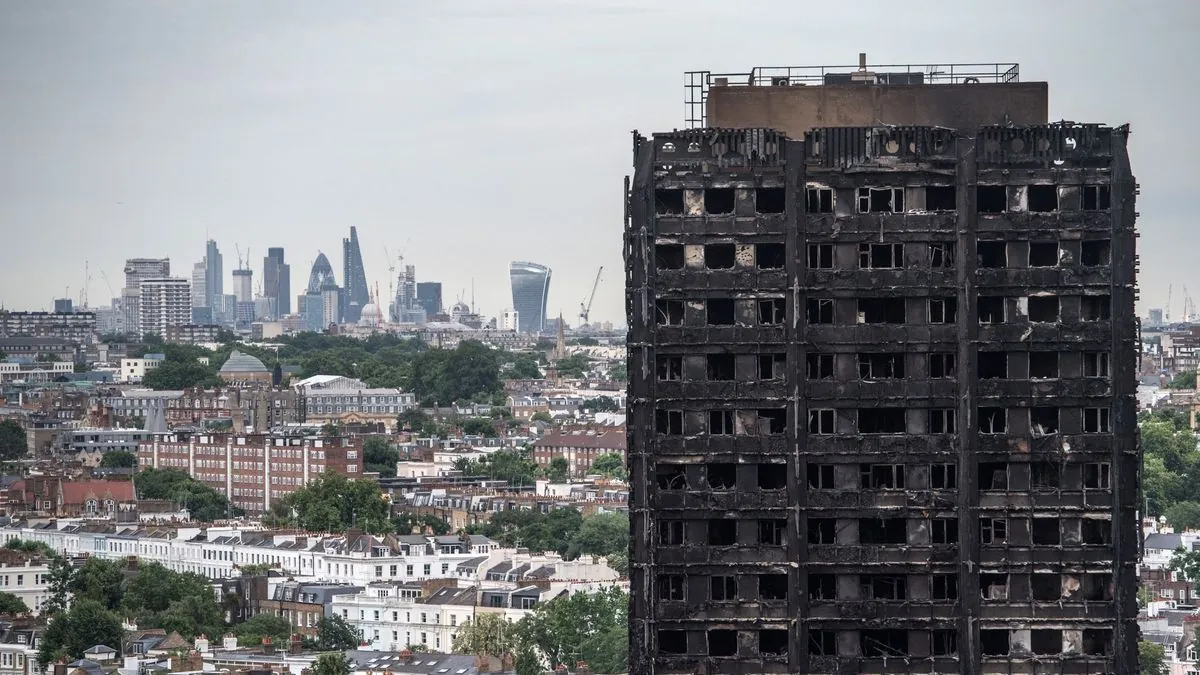The final report on the 2017 Grenfell Tower fire in London has revealed a disturbing truth: all 72 deaths could have been prevented. This tragedy, which occurred over seven years ago, has been identified as the deadliest structural fire in the United Kingdom since the 1988 Piper Alpha disaster.
The comprehensive 1,700-page document, released on September 4, 2024, summarizes a six-year public inquiry. It exposes a web of failures spanning decades, implicating government officials, builders, subcontractors, regulators, and emergency responders. Martin Moore-Bick, the retired judge who chaired the inquiry, stated that incompetence was widespread, with some instances of dishonesty and greed.
The report particularly criticizes companies that supplied the exterior cladding, which was applied during a renovation for insulation and aesthetic purposes. This flammable material was identified as the primary reason a small kitchen fire on the fourth floor spread rapidly, engulfing the 67.3-meter (220 ft) tall tower. The inquiry found that these suppliers had deliberately manipulated testing processes and misled the market about the dangers of their products.
One company singled out was Arconic, whose France-based subsidiary manufactured the panels. The inquiry revealed that as far back as 2005, Arconic's data showed their Reynobond 55 PE cladding product reacted dangerously to fire when folded into a "cassette form." Despite this knowledge, the company allegedly concealed the true extent of the danger from the market.
"We reject any claim that we sold an unsafe product and that our materials regularly undergo tests by third-party bodies that are made publicly available."
The London Fire Brigade also faced criticism for its "stay put" advice during the fire, which tragically trapped many residents. The inquiry noted that a 2009 fire should have alerted the brigade to shortcomings in its high-rise firefighting capabilities.
Building safety regulators were not spared in the report. Despite being aware of the risks posed by combustible cladding panels, they failed to take action. This inaction was partly attributed to the 2010 government's mission to cut red tape, which came at the expense of safety matters.
The Grenfell tragedy highlighted stark inequalities in British society. Among the victims were immigrants, children, the elderly, and the economically disadvantaged, despite the tower's location in one of London's wealthiest boroughs. In response to the report, Prime Minister Keir Starmer issued a formal apology to the victims, their families, and the local community.
The Metropolitan Police are now meticulously reviewing the findings, investigating potential criminal charges including corporate manslaughter, gross negligence manslaughter, fraud, and health and safety offenses. However, any prosecutions are unlikely to occur before the end of 2026.
As investigations continue, Grenfell Tower stands as a somber reminder in west London's skyline. Its empty shell, covered in protective white wrapping, bears a green heart and the words "Grenfell forever in our hearts," serving as a poignant memorial to the lives lost in this preventable tragedy.
